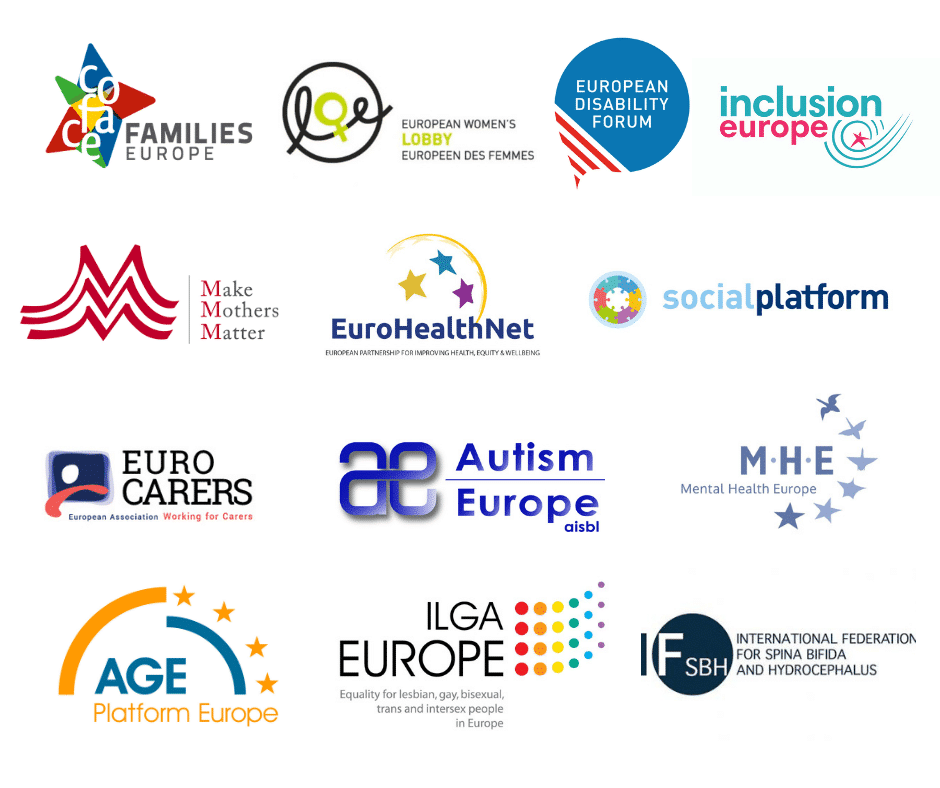On Thursday, 13 June, the European Council of Employment and Social Affairs ministers (EPSCO Council) finally adopted the directive on work-life balance for parents and carers. AGE highly welcomes the adoption of the compromise with the European Parliament, as it recognises for the first time informal carers and grants them five days of carers’ leave per year, as well as the right to request flexible work arrangements to accommodate care and employment. This piece of legislation has been proposed by the European Commission to break the stalemate surrounding the revision of the maternity leave directive, which was blocked in the Council between 2008 and 2014.
For the adoption of the directive, AGE has signed a letter submitted by 12 civil society organisations to the EPSCO Council, calling for a swift implementation and proper monitoring of the directive. The letter calls for the consequent adequate payment for family leaves and further investment into care services to improve work-life balance.
Here is the text of the open letter:
Joint Letter to the EPSCO Council:
Let’s move towards swift transposition of the EU Work-Life Balance Directive!

As the first legislative proposal to follow the proclamation of the European Pillar of Social Rights in November 2017, the Work-Life Balance Directive is an important stepping stone in the consolidation of existing rights and the establishment of new ones for millions of citizens, and as such, it must now be followed up with enforcement and monitoring.
We, a coalition of European networks of NGOs, urge the national governments to move towards swift transposition after the 13th June meeting of the EPSCO Council.
The transposition phase of this Directive will be of paramount importance, as it is a chance to discuss and to review national work-life balance policies to ensure they fulfill the needs of families in the 21st century, based on values of gender equality, social inclusion and non-discrimination, and boost investment and development of services.
We would like to highlight our key priorities for the future, to deliver a strong message and demonstrate to citizens that the EU works with and for them:
- Ensure adequate payment of family leaves: Adequate payment of leaves, regardless of the type of leave (paternity, parental, carers), is a key element to ensure non-discrimination of workers based on economic conditions of the family, to rebalance the gender uptake of the leaves and care responsibilities, and to address and prevent poverty of families. There are clear references in the Directive about the need to provide adequate income replacement for family leaves, and this should guide governments in their definition of “adequate”.
- Boost investment in services to families as a complementary measure: Families need adequately paid leaves but they also rely on care services every day. Transposition of the Directive must be an opportunity to further develop early childhood education and care (accessible, affordable and high quality, below the age of 3), and long-term care (quality, person-centred, for persons in need of support and/or care and a stream of support for carers who have to leave the labour market). These services, especially in rural areas and marginalised communities, are crucial for people to reconcile the different aspects of their lives such as family, work, health, care, leisure, or education.
- Recognise the diversity of families and their needs: the Directive acknowledges family diversity, with the notion of “equivalent second parent”. We strongly encourage national legislators to insert this diversity into national legislation via the transposition of the Directive, providing a mix of universal support and targeted support to different families in vulnerable or special situations, many of whom are mentioned in the Directive: single parents, parents with a disability or parents of children with a disability, a mental health problem or long-term illness, adoptive parents, multiple births and premature births, persons in need of care and assistance who do not have any family member left. Family diversity also means recognising the different relatives who are family carers: not only children, parents, or spouse/partner or persons living in the same household (as indicated in the Directive) but also additional relatives, such as sibling and grandparents.
- Promote the use of EU funding programmes to support innovation and upward reforms: The European Structural and Investment Funds, and the post-2020 follow-up of these funds are important to support interventions, namely in the field of disability, health and long-term care, and early childhood education and care, which are extremely complementary to the leaves and flexible working arrangements covered by the Directive.
- Recognise the important role of civil dialogue and social dialogue: NGOs representing civil society groups concerned by the Directive must be consulted during the transposition process, and the social partners must be encouraged to secure collective agreements on Work-Life Balance to drive change in workplace culture.
- Bring family policies in line with new labour market realities: To be able to respond to the needs of families, leave provisions must be dissociated by the employment status or type of employment. All workers, including self-employed, workers with atypical or temporary contracts and unemployed must be entitled to the same rights as employees with standard contracts, to avoid further discrimination.
- Monitoring and reporting: There is a commitment in the Directive to close monitoring by the European Commission of the Directive implementation which requires Member States to collect data on the take-up of leaves and flexible working arrangements. This must include disaggregated data to take into account the needs of specific and vulnerable groups. The creation of a European Work-Life Balance Index and its incorporation in the European Semester process would be a powerful tool to improve the monitoring of Member States’ performance over time.
For more information on AGE work on work-life balance, please contact Philippe Seidel, philippe.seidel@age-platform.eu






